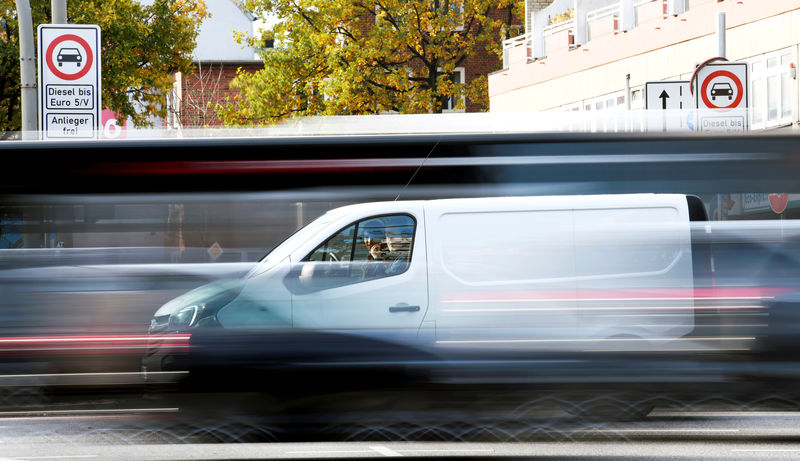DUESSELDORF (Reuters) - A German administrative court on Thursday ruled that the western state of North Rhine-Westphalia must ban older diesel vehicles from parts of the nation's industrial heartland, including a busy motorway, in the latest extension of such bans in the country.
The ban affects Gelsenkirchen and Essen, including part of the A40 motorway, which are located in the Ruhr region, one of Germany's most densely populated areas.
The ban, which will come into effect next year, follows a lawsuit brought by the DUH environmental lobby group.
It has called for a ban of diesel vehicles in various German cities, invoking legal thresholds of nitrogen dioxide (NO2) in the air.
Scandals involving schemes to conceal the true levels of pollutant emissions from diesel cars have dealt repeated blows to the global reputation of Germany's car industry in recent years.
DUH's lawyer Remo Klinger praised the ruling, saying that "Clean air is a human right that the state must guarantee."
Other German cities also face the risk of diesel driving bans imposed by judges, including Aachen, Berlin, Frankfurt, Stuttgart, Duesseldorf and Mainz.

For a factbox on German diesel bans